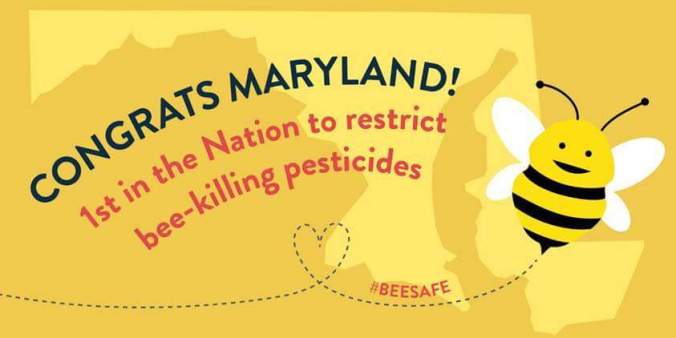When I was researching alpaca farming, I took into consideration that alpacas use the bathroom in “communal” piles. This sounded very appealing to me; I mean that should make cleaning the pasture a breeze! None of my research suggested that it was at all difficult to manage the poop piles, which was reported to be an additional money maker. SCORE!
If you are considering becoming an alpaca farmer, you’ll need to take some things into consideration. They do use the bathroom in the same “general” area, and like women, they tend to go at the same time, at least mine do, it is not unusual to see three to four of the girls going at the same time in the same general area. What no one tells you about the communal area is that it is spread out covering several feet, and there is more than one communal pile.
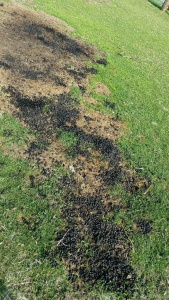
A communal “pile” more like a communal area, before.
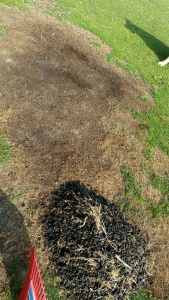
Same communal pile, after it has been raked up into an actual “pile”
Cleaning the pasture is all about the tools. I started out with a small tined rake and a dust pan like you see used in a movie theatre, and a small garden cart. This is a great set up if you have a handful of alpacas. I soon decided that it was easier to use a large leaf rake to gather all the small piles in the communal area and then scoop them into the dust pan. I coveted this large dust pan that I saw in the light livestock catalog, but the frugal part of me wouldn’t pay the extra shipping. I did finally find a larger one at a Tractor Supply Store, and I (finally) bought a second one at an alpaca show where Light Livestock was a vendor. (*Take note that if you want something from them, and are close by to where they will be a vendor, they will bring your order to the show and save you money.) If you have several alpacas, you will probably end up needing a large wheelbarrow or dump cart to transport your poop. Like I said, I started off with a small garden cart, but eventually decided that a large dump cart was more efficient at hauling.
**I should add that some people spend over a thousand dollars (more like two) on a pasture vacuum. Based on my refusal to pay additonal shipping for a large poop pan, I think it is pretty safe to assume we will not be using a pasture vac.
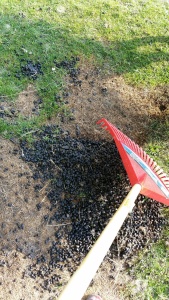
Large leaf rake, most effective in collecting poop.
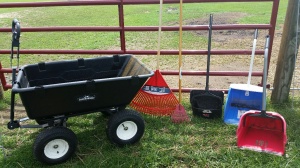
Not shown is my smaller garden cart. It is currently housing a broody chicken, I dare not disturb her. The blue pan is the coveted pooper scoop pan from Light Livestock, the red one was a purchase from Tractor Supply, as was the large dump cart.
What do you do with all that poo? Well, I had visions of selling the alpaca poop, also deemed “black gold” (Redneck Beverly Sudlersville Hillbillies?) Alpacas have a three stomach digestive system, and since they process their food so well, it comes out ready to use on your garden. It can even be used on indoor houseplants without worrying about the smell, since it is close to being odorless. I could go on about the benefits of alpaca poop and the chemistry behind it, but that will be another blog post. I have read about people who trade poop for hay, and some people even give their poop away if someone wants to come and rake the pasture, sign me up for that please! I am sure it is all in the marketing and your salesman abilities, but so far, we have not sold any poop, I can’t really say I have tried all that hard either. One thing I have learned is that, at least in my area, you cannot call it “fertilizer” or “compost”, I say, tomato, tomatoe.
We started off with some pallet composting areas near the girls pasture. That filled up REALLY fast. Alpacas poop an average of one pound per day, for us, that equals thirteen pounds a day, three hundred and ninety pounds a month, or four thousand six hundred and eighty pounds a year. We recently renegotiated our contract with the farmer that plants our fields and will be using a two acre parcel near the boys pasture as a large garden, so our poop is now being dumped along the edge of the field to be tilled under once the current crop is off.
I enjoy cleaning the pastures; it gives me the opportunity to spend some time with the alpacas. I announce myself as “housekeeping” when entering the gate, and am greeted by several nosy critters, that act as if I am doing something very interesting.
And that is the skinny on poop, at least from this newbie’s perspective.
